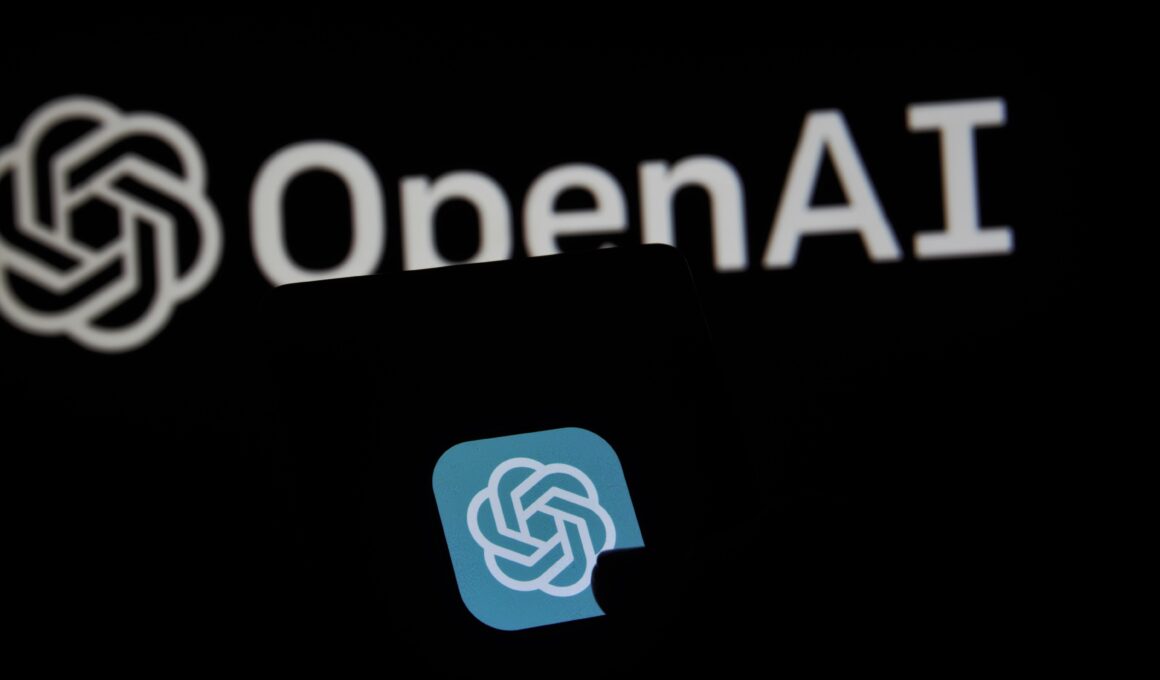Artificial Intelligence (AI) is revolutionizing industries across the globe. As we enter this new era of technological advancement, it is crucial for individuals, organizations, and businesses to understand the implications and opportunities that AI brings. In this comprehensive guide, we will explore the transformative power of AI and how it is reshaping various sectors. From data-driven decision-making to automation, AI is poised to redefine the way we live and work.
1. Understanding AI: Beyond the Hype
AI is not just a buzzword or a singular concept; it encompasses a multitude of technologies and applications. It is important to grasp the diverse nature of AI before delving into its impact on different industries. AI can be described as a set of algorithms and techniques that enable machines to mimic human intelligence. These algorithms can process vast amounts of data, recognize patterns, and make informed decisions. From machine learning to natural language processing, AI has the potential to transform the way we interact with technology.
1.1 The Evolution of AI
The journey of AI can be traced back to the 1950s when the field of AI research was born. Over the years, AI has experienced significant advancements, thanks to breakthroughs in computing power, data availability, and algorithm development. From rule-based systems to neural networks and deep learning models, AI has come a long way. Today, AI is integrated into various applications and services, ranging from virtual assistants like Siri to autonomous vehicles.
1.2 Debunking AI Myths
With the rise of AI, there are common misconceptions and fears surrounding its capabilities. It is crucial to debunk these myths to fully understand and appreciate the potential of AI. One such myth is the fear that AI will replace human jobs entirely. While AI can automate certain tasks, it is more of an augmentation tool that enhances human capabilities rather than replacing them. AI is designed to assist humans and provide valuable insights, enabling us to make better decisions.
1.3 The Ethical Implications of AI
As AI becomes more sophisticated and prevalent, ethical considerations come to the forefront. Issues such as data privacy, algorithmic bias, and job displacement need to be addressed. Organizations and policymakers must establish guidelines and regulations to ensure the responsible and ethical use of AI. Transparency, fairness, and accountability should be prioritized to mitigate potential risks.
2. AI in the Legal Services Industry
One sector that is experiencing a significant impact from AI is the legal services industry. AI technologies are reshaping how legal professionals work, improving efficiency, and transforming the delivery of legal services. Let’s explore the key implications of AI in the legal domain.
2.1 Data-Driven Insights
AI enables legal professionals to leverage large volumes of data and extract valuable insights. By analyzing case precedents, court rulings, and legal documents, AI algorithms can provide lawyers with relevant information to support their decision-making process. This data-driven approach enhances legal research, allowing lawyers to access comprehensive and accurate information more efficiently.
2.2 Automating Tedious Tasks
Legal professionals often spend a significant amount of time on mundane and repetitive tasks, such as contract review and due diligence. AI-powered tools can automate these processes, freeing up valuable time for lawyers to focus on more complex and strategic aspects of their work. Natural language processing and machine learning algorithms enable AI systems to analyze documents, extract relevant information, and streamline legal workflows.
2.3 Enhanced Case Prediction
Predicting the outcome of legal cases is a complex task that requires analyzing vast amounts of data and considering various factors. AI algorithms can analyze historical case data, identify patterns, and provide lawyers with insights into the potential outcomes of similar cases. This predictive capability helps lawyers make informed decisions and develop effective legal strategies.
2.4 Improved Document Management
Managing and organizing legal documents is a critical aspect of legal practice. AI-powered document management systems can automatically categorize, tag, and organize documents, making it easier for legal professionals to access the information they need. These systems can also identify relevant documents during the discovery process, saving time and effort.
2.5 Client Interaction and Support
AI-powered chatbots and virtual assistants are transforming the way legal services are delivered to clients. These intelligent systems can provide instant responses to frequently asked questions, offer legal advice, and guide clients through various legal processes. By leveraging AI, law firms can enhance client satisfaction and improve the overall client experience.
3. Implementing AI: Key Considerations
While the potential of AI is immense, implementing AI technologies requires careful planning and considerations. Here are some key factors to keep in mind when adopting AI in your organization or business.
3.1 Define Your Objectives
Before diving into AI implementation, it is essential to clearly define your objectives and identify the problems you are trying to solve. Start by assessing your organization’s pain points and determine how AI can address them. Whether it’s streamlining processes, improving decision-making, or enhancing customer service, align your AI initiatives with your strategic goals.
3.2 Data is the Foundation
AI relies on data to learn, analyze, and make predictions. Therefore, it is crucial to have a robust data infrastructure in place. Assess the quality, quantity, and accessibility of your data. Data hygiene practices, such as cleaning and organizing data, are essential to ensure accurate and reliable AI outcomes. Collaborating with data experts and leveraging external data sources can enhance the effectiveness of your AI implementations.
3.3 Choose the Right AI Tools and Technologies
AI encompasses a wide range of tools and technologies. It is essential to choose the right ones that align with your specific use cases and objectives. Conduct thorough research, assess different AI solutions, and consider factors such as scalability, compatibility, and ease of integration. Collaborating with AI experts or partnering with AI service providers can help you navigate this landscape and identify the best-fit solutions for your organization.
3.4 Address Ethical and Legal Considerations
When implementing AI, it is crucial to consider the ethical and legal implications. Ensure compliance with data protection regulations and establish guidelines for responsible AI use. Address concerns regarding algorithmic bias, transparency, and accountability. Establish clear policies and procedures for handling sensitive data and ensure that AI systems operate within legal and ethical boundaries.
3.5 Invest in Training and Upskilling
AI implementation requires a skilled workforce capable of harnessing the power of AI technologies. Invest in training programs to equip your employees with the necessary skills to work alongside AI systems. Foster a culture of continuous learning and encourage employees to embrace AI as an augmentation tool rather than a threat. Upskilling your workforce will enable them to leverage AI technologies effectively and contribute to the success of your AI initiatives.
4. The Future of AI: Opportunities and Challenges
As AI continues to evolve, the future holds immense opportunities and challenges. Let’s explore what lies ahead in the era of AI.
4.1 Industry Disruption and Transformation
AI has the potential to disrupt and transform various industries. From healthcare and finance to manufacturing and transportation, AI technologies are reshaping traditional business models and processes. Organizations that embrace AI early on and adapt to the changing landscape will gain a competitive edge and drive innovation.
4.2 Ethical and Regulatory Frameworks
As AI becomes more pervasive, the need for robust ethical and regulatory frameworks becomes crucial. Policymakers and industry leaders must collaborate to establish guidelines that promote responsible AI use, protect privacy, and ensure fairness. Balancing innovation and regulation will be a key challenge in the future of AI.
4.3 AI and Human Collaboration
The future of AI is not about replacing humans but augmenting their capabilities. AI systems will work alongside humans, enhancing productivity, decision-making, and creativity. Embracing this collaboration will unlock new possibilities and drive innovation in various fields.
4.4 Addressing Bias and Trust
AI algorithms are only as good as the data they are trained on. Bias in data can lead to biased AI outcomes, perpetuating societal inequalities. Addressing bias and ensuring transparency in AI algorithms will be critical in building trust and fostering widespread adoption.
4.5 The Role of AI in Solving Global Challenges
AI has the potential to address some of the world’s most pressing challenges, such as climate change, healthcare access, and poverty. By leveraging AI technologies, we can develop innovative solutions and drive positive change on a global scale.
In conclusion, the era of AI is upon us, and its transformative power is reshaping industries across the globe. Understanding the diverse applications of AI, its ethical implications, and the key considerations for implementation is crucial for individuals and organizations to thrive in this new era. As we navigate the opportunities and challenges of AI, it is essential to embrace AI as a tool that enhances human capabilities and fosters collaboration. With the right approach, AI can unlock new possibilities, drive innovation, and create a better future for all.







